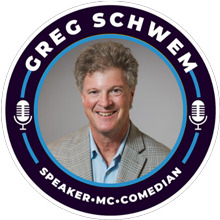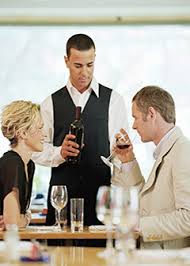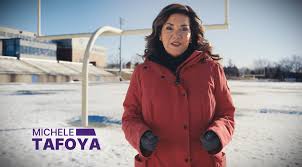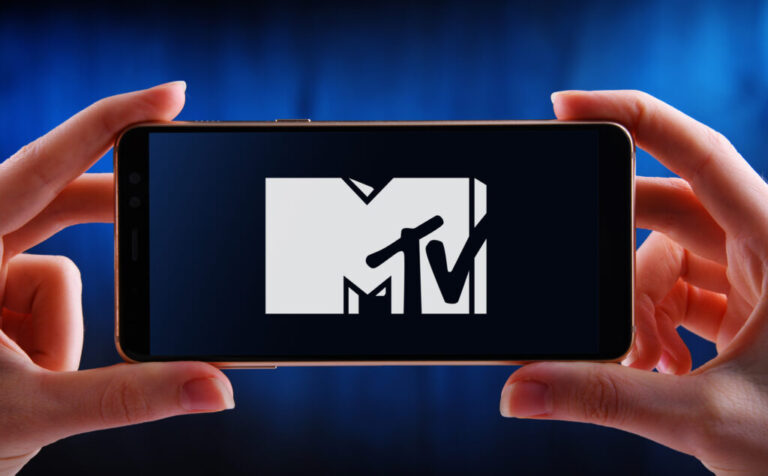This past February, a year-old CNBC video on restaurant tipping suddenly went viral faster than the time it takes the average waiter to recite the list of daily specials.
The video, starring now former CNBC reporter Zack Guzman, suggested restaurant patrons arrive at a tip simply by doubling the tax, as opposed to tipping the standard 20 percent on the post-tax amount. Guzman showed his recent restaurant bill of $108.88, a meal the viewer could see included two glasses of chardonnay, a slice of key lime pie and a post-meal espresso. Guzman failed to reveal what else he ordered; let’s hope it wasn’t more of the same.
Using the tax doubling method, Guzman triumphantly announced he had saved 4 dollars! He then assumed New Yorkers such as himself ate out 100 times a year, resulting in a $400 annual savings.
Twitter, naturally, went ballistic.
Guzman, who looks like Mario Lopez’ twin brother but now with fewer career options, found himself the subject of vicious rants, mostly from the restaurant server community.
“Zack Guzman should probably not go out to eat again for a while,” read one of the few responses suitable for inclusion in this column.
I found myself siding with the serving community, who, for the most part, cheerfully spends their days depositing meals in front of us and then listening to us complain our salads contained arugula and we SPECIFICALLY requested it be removed, which is why I usually tack 25 percent onto my bill. Post tax.
Waitstaff, don’t worry about Guzman. He will eventually reach middle age, gain 30 pounds and realize he should have avoided key lime pie. Think of the money he could have saved on pants! Instead, let me give you some pointers that could increase your tips; pointers that have nothing to do with whether you remembered to bring me extra sour cream or place the bacon bits on the side.
It starts, and ends, with eliminating what I refer to as “wait-speak.” Here are a few phrases that need to be stricken from your interactions with diners:
1. “Not a problem.”
I recently asked for water in a New Jersey cafe and was told it was “not a problem.” I should think not. Furthermore, I spent the rest of my meal wondering which beverages DO cause problems.
“Excuse me; may I have a Diet Coke?”
“EVERYBODY DOWN. THIS IS NOT A DRILL!”
“On second thought, I’ll have a Diet Pepsi.”
“Not a problem.”
2. “Sounds good.”
At an Irish-themed establishment near my house, the waitress, upon hearing my dinner order, replied “Sounds good.” Again, I was confused. Did those two words signal the end of our interaction, or was she hoping I’d order a similar meal for her?
“I’d like my steak medium rare. How would you like yours?”
Of course my choice sounds good. I just spent 20 minutes perusing the menu. I have yet to order a meal that begins with the phrase, “I’m not crazy about this, but I’ll have the…”
3. “That’s MY favorite.”
I would prefer it if you didn’t respond to my meal selection with that phrase. Perhaps it is your favorite, but now my dinner companions are questioning their choices, for fear you will respond with, “Sea bass? More like canned sardines, if you want my honest opinion. But would you like yours fried or pan-seared?”
4. “What are WE having today?”
Alas, I’ve saved the most grating habit for las; the one that could reduce your tip dramatically, depending on my mood. Please, under no circumstances, should you insert yourself into the ritual of ordering, or assume there are invisible guest at my table when I’m dining alone.
If you and I are dining together, I will let you know. Furthermore, I will order for you, first asking what your favorite item is and then ordering it in such a way that it will sound good. That’s not a problem, is it?
Please keep these suggestions in mind, and I’ll reciprocate by including a generous tip.
I’ll also identify Zack Guzman if I ever see him at your station.




The F-Bomb Has Gone Mainstream — And Nobody Cares Anymore